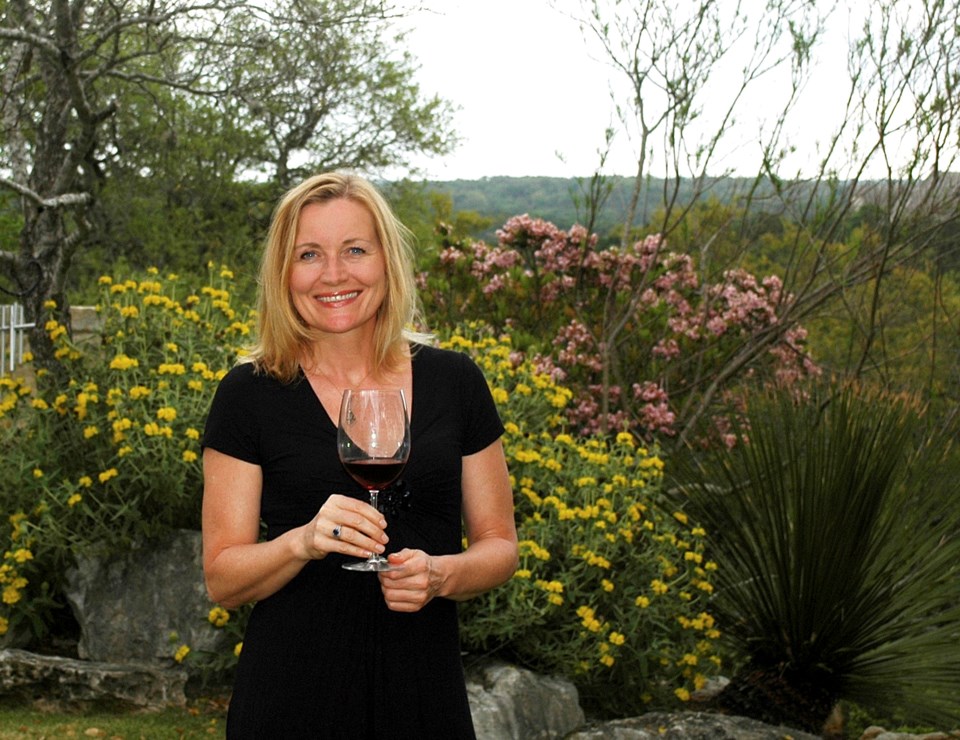Wine is proof that God loves us and wants us to be happy. So say cocktail napkins, T-shirts and Facebook memes. Although she has a PhD in historical theology and speaks with great eloquence and depth on the subject, Gisela Kreglinger pretty much agrees.
Kreglinger, a German-born, Scottish-educated academic, is in Vancouver this week sharing her fervent enthusiasm for wine and its place in Christianity, a place she says is too often overlooked or downplayed.
For generations — centuries, in fact — Kreglinger’s Lutheran family has been making wine in Germany’s predominantly Catholic Franconia region. Wine has been part of her life since she was old enough to pour and her family’s product is used in church services as well as on the table. When she went away to study, she discovered that not every Christian views wine as central to their faith.
“Wine and spirituality, historically, have gone hand-in-hand,” she says. “It's just something that we have forgotten over time and there are a lot of reasons for it. We haven't forgotten it where I'm from because my family has been making wine for the Eucharist, so because I grew up on the winery and because we are Lutherans, it's always been deeply intertwined and it's been very natural for me, so when I left home and realized that people don't think that way, I thought, how sad.”
There are a number of reasons why the enjoyment of wine, beyond its sacramental use in communion, has been overlooked by Christians, she says. In North America, for instance, there has been a stigma around alcohol and not simply because the first European settlers were Puritans. In fact, Puritans drank a hell of a lot and part of the problem was that the East Coast is not the best soil for vineyards.
“So strong spirits, distilled spirits, became the primary drink of the people,” says Kreglinger. That became a problem and so reformers began to advocate abstinence from hard liquor. “And then they started saying ‘we really shouldn't be drinking at all,’ even though, in the history of the church, that hasn't been the case at all.”
On the contrary, she says, both the Hebrew and Christian scriptures place wine at the centre of God’s gifts to humanity, a clear sign of God’s blessing.
“The first mention of wine in the Bible is when God makes a covenant with Noah,” she says. The next thing Noah does is plant a vineyard. “From that time on, wine is actually a very, very important theme in the biblical narrative, much more important than we would, at first sight, think.”
When Jacob blesses his sons, he promises his son Judah vineyards and a bounty of wine.
“So here, we get a sense that God's blessing is identified with wine. To be blessed by God means to be able to settle in a place that is rich in agriculture, and rich in vineyards and wine,” Kreglinger says. “This is a theme that continues throughout the Old Testament.”
The prophets promise a return to the land of agricultural abundance and a time when spears, the weapons of war, will be turned into pruning hooks, the knives used in the vineyard.
“God's redemption is envisioned in being able to return to their land, to live in peace and safety and to plant vineyards and to harvest fruit from the vines and to have an abundance of wine,” she says.
Fast forward to the New Testament.
“Jesus’ first miracle of turning water into wine,” Kreglinger notes. “This is really a fulfilment of Old Testament prophecies. Part of God's redemption and a sign of God's work is that there will be an abundance of wine and there will be feasting and joy. So Jesus’ first miracle really fulfils these longings and prophecies of the Old Testament. I think we forget about that. We just haven't paid attention to this agricultural dimension because we felt it's not important. But I want to argue it is very important.”
She thought it so important that she set about to find what was written on the subject and she came up with close to nothing. Thus, her book, The Spirituality of Wine, which will form the basis for two presentations in the coming days. She will speak Sunday at St. John’s Anglican Church and on April 28 at A Rocha in Surrey. The latter event will include a wine tasting.
“I introduce wine tasting as a spiritual practice,” she says. “Enjoying wine and learning to savour it is actually a way of appreciating what God has given us.”
Kreglinger admits that her evangelism for wine is not a hard sell.
“I think people are ready to embrace joy again. Joy is an important part of my theme because wine was primarily given to bring us joy and to enhance our joy,” she says. Some Christian traditions purvey the idea that to be genuinely spiritual means removing oneself from the world. Kreglinger sees that as ambivalence toward God’s creation. “There is such a richness in understanding wine as a gift from God and something that is spiritual and enriches our lives.”
@Pat604Johnson



